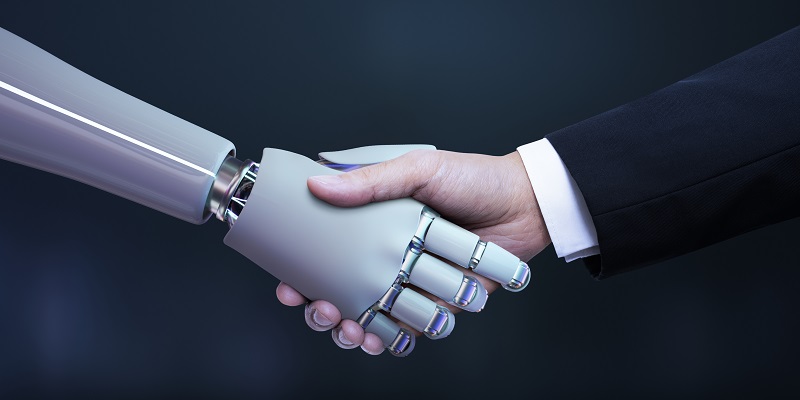The recruitment landscape has witnessed a profound transformation in recent years. With the advent of artificial intelligence (AI) and machine learning (ML), the traditional methods of candidate assessment and selection have experienced a radical shift. This article delves into the significance of automation in initial candidate assessments, explores the concrete concepts reshaping recruitment, and examines the benefits, limitations, and future implications of AI-driven talent acquisition.
Freeing up human recruiters for higher-level tasks
By automating initial candidate assessments, these technologies free up human recruiters to focus on higher-level tasks such as building relationships, conducting interviews, and evaluating cultural fit. This shift enables recruiters to engage more deeply with candidates and make informed decisions.
Increased efficiency in the recruitment process
AI-driven recruitment technologies can swiftly analyze a vast volume of resumes and profiles, identifying top candidates based on predefined criteria. This reduces the time and effort spent on manual screening, leading to a more efficient selection process.
Importance of balancing automated profile screenings with human judgment
While automated screenings offer efficiency, striking the right balance with human judgment is crucial. Recruitment decisions often require context, intuition, and a deep understanding of the company’s culture. Human recruiters bring empathy and discernment, enabling them to assess intangible qualities that AI may miss.
Leveraging AI for data-driven decision-making
The power of AI lies in its ability to analyze vast amounts of data. By harnessing AI’s capabilities, recruiters can make data-driven decisions, identifying patterns and trends that would be challenging to uncover through manual processes alone. This combination of AI and human judgment can lead to more accurate and objective candidate assessments.
Limitations and Challenges in AI-Driven Recruitment
AI and ML models are only as good as the data on which they are trained. Ensuring the quality and diversity of training data is crucial to avoid biases and inaccuracies in candidate assessments. AI algorithms, if not carefully designed and monitored, can inadvertently perpetuate biases present in training data. It is imperative to continually evaluate and update these algorithms to ensure fair and unbiased candidate evaluations.
Handling sensitive personal data in the recruitment process
The use of AI and ML in recruitment involves handling sensitive personal data, necessitating robust data protection and privacy measures. Organizations must prioritize data security and compliance with regulations to maintain the trust of candidates and protect their privacy.
Human Factors in AI-driven Recruitment
Considering the nuances of individual career trajectories and experiences, AI and ML may need help in understanding them. Human recruiters bring empathy and contextual understanding, enhancing the accuracy of candidate assessments and aligning them with organizational needs.
Amplifying the capabilities of human recruiters through AI-driven hiring
AI-driven hiring, as exemplified by industry leaders, amplifies the capabilities of human recruiters. By augmenting human judgment with AI tools, recruiters can make better-informed decisions, resulting in enhanced candidate matches and improved overall hiring outcomes.
Cost considerations in implementing AI and ML in recruitment
Implementing AI and ML solutions in recruitment can be costly, requiring investments in technology, training, and infrastructure. Organizations need to evaluate the potential return on investment (ROI) and the long-term benefits before integrating these technologies into their recruitment processes.
Anticipating further innovation in talent acquisition
The use of AI and ML in recruitment is an ever-evolving field. As technology advances, we can anticipate further innovation, including advancements in natural language processing, sentiment analysis, and talent prediction algorithms. These technologies will continue to transform the way organizations attract and select talent.
Implications of a smarter era in recruitment
The future holds even more innovation, propelling a smarter era of talent acquisition. From chatbots conducting initial screenings to predictive analytics identifying high-potential candidates, the recruitment landscape is set to undergo significant changes. Organizations must stay adaptive and embrace these advancements to remain competitive and attract top talent.
The rise of automation in recruitment, fueled by AI and ML technologies, has reshaped the way organizations approach talent acquisition. While these technologies bring efficiency and objectivity to candidate assessments, it is essential to strike a balance between AI-driven automation and human judgment. By leveraging the strengths of both AI and human recruiters, organizations can create a recruitment process that combines efficiency, fairness, and personal connection, leading to better hiring decisions and improved overall outcomes. As the future unfolds, organizations must embrace and adapt to this smarter era of talent acquisition to thrive in an increasingly competitive marketplace.

